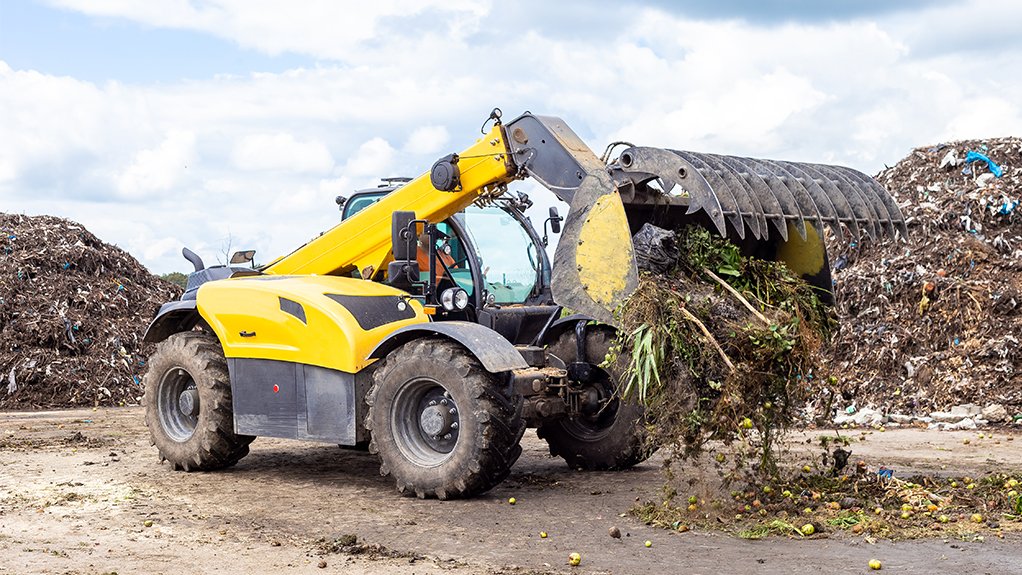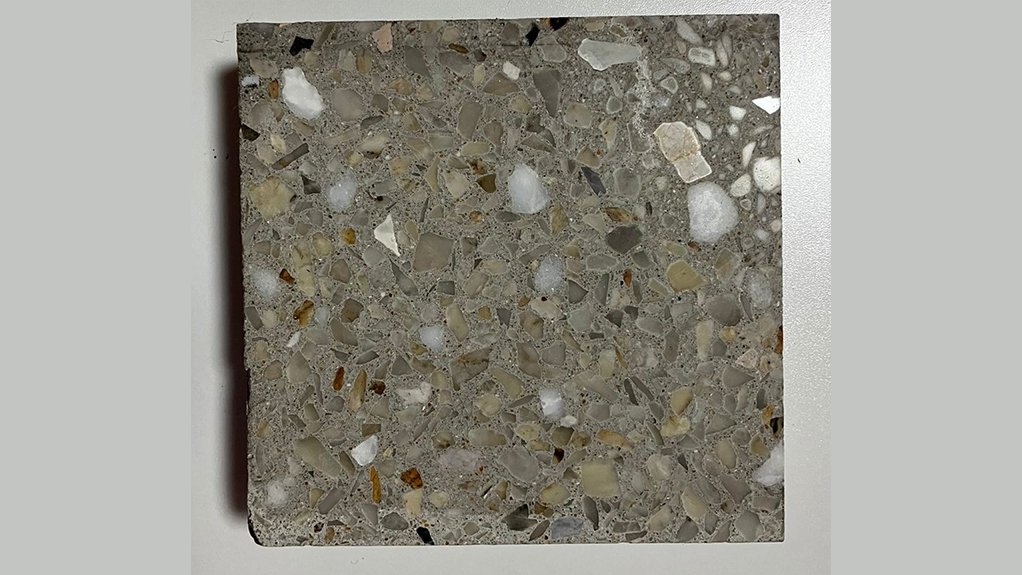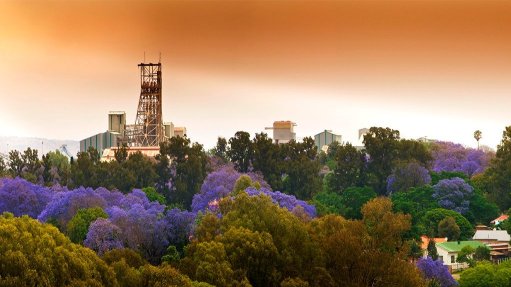EPR regulations positive for waste reduction



DUMP DIVING The Western Cape government implemented a regulation in 2022 to divert organic waste out of landfills by imposing a 50% ban on organic waste dumping to landfills in preparation for a 100% ban in 2027
ONE MAN’S TRASH… Zero Waste is looking at incorporating waste plastics into the building’s structure, as well as into tiles, bathroom accessories, countertops and tables
The amended Extended Producer Responsibility (EPR) regulations, instituted in November 2020, require product importers and manufacturers in the packaging industry to contribute towards the recycling of product packaging, which has had a significant impact on waste production, says Zero Waste Technologies operations director Hein Fourie.
A contentious issue in the amended regulations for the manufacturing industry, particularly those in the electronic equipment manufacturing and paper and plastic packaging industries, is the requirement to become affiliates of producer responsibility organisations (PROs), which requires the payment of daily fees, based on net cost recovery to PROs, owing to the high volumes of waste they produce. Such organisations collect fees from their affiliates to establish and implement EPR schemes, and are meant to enact responsibilities pertaining to the collection and recycling of specific products as mandated by the plastic waste and electronic-waste management rules. For example, PROs may use their proceeds to set up recycling initiatives.
These have had “sudden positive outcomes”, where manufacturers are opting to use more sustainable packaging, owing to the influence of the new requirements, says Fourie. Organic Waste Ban “One big change is the organic waste ban implemented in the Western Cape in 2022. It initially started with a 50% organic ban to landfill, which will be followed by a 100% ban in 2027. There’s been a significant shift towards diverting organic waste out of landfills in the Western Cape,” Fourie notes.
The 50% ban was a precursor meant to give producers sufficient time to prepare for the 100% ban; large organic waste producers will have to submit a waste management plan detailing how they intend to comply with this requirement. “. . . the Department of Forestry, Fisheries and the Environment has . . . enforced the ban as part of the licencing condition of the landfill, which is quite clever, as the landfill is not allowed to operate outside of those parameters,” Fourie adds.
Further, the legislation will be adopted throughout the country as organic waste is the number-one emitter in terms of the majority of greenhouse-gases. Excessive volumes of waste are being dumped at landfills, instead of them being used as feedstock that can be easily recycled or repurposed for composting, producing other products or nutrient recycling, asserts Fourie. Another piece of legislation recently passed in the organic waste management space requires that involved entities comply with the norms and standards on organic waste, rather than applying for a waste management licence to process organic waste, making it accessible for new entrants.
This will likely result in an increase in the number of organic treatment facilities and those interested in organic waste treatment. In light of this legislation, new entrants to the organic waste treatment space would enter a “well understood industry that can be easily adopted”, especially because a company starting out in the industry will not have to go through an 18-month process to set up a facility, as long as existing sites comply with the norms and standards.
Fourie adds that, initially, there was rapid growth in the adoption of biogas from around 2013, but then the market was plagued by many failed projects, mainly because of inexperienced project developers.However, biogas projects are now “bigger and better”, with larger, centralised facilities developing, in comparison to more decentralised and relatively small ones. “Project developers have realised that bigger is better – fuel cost is driving this realisation and, once the legislation changes, it could perhaps introduce unique opportunities where one can upgrade and compress the biogas to produce a natural gas or a liquefied petroleum gas replacement,” he says.
Zero Waste Technologies is developing two waste-to-energy projects which entail sorting commercial waste, such as residual waste from multilayer packaging, organic waste and recyclable waste from the private sector, and converting it into electricity. Green Commercial Building The company is excited about the construction of a “unique commercial green building” that it has been working on in collaboration with a property company, in the Western Cape, since 2022. Currently in its second phase of evaluation, Zero Waste is looking at incorporating waste plastics into the building’s structure, as well as into tiles, bathroom accessories, countertops and tables.
It’s going to have a significant environmental impact – not only on the amount of waste and the cleanup of the environment but also the reduction of youth unemployment in South Africa, Fourie elaborates. “We will utilise waste materials, rather than virgin materials such as aggregates, ceramics and marbles. We’re looking at producing a marble replacement, which will comprise waste, such as ash, glass and plastics, as the construction industry is probably the biggest emitter of carbon emissions.”
Fourie highlights that the first demonstration facilities are expected to start in February 2024, as Zero Waste Technologies is waiting for the final environmental authorization. The company is also undertaking two other large-scale waste-to-energy projects that will start operations in 2027, Fourie concludes.
Article Enquiry
Email Article
Save Article
Feedback
To advertise email advertising@creamermedia.co.za or click here
Press Office
Announcements
What's On
Subscribe to improve your user experience...
Option 1 (equivalent of R125 a month):
Receive a weekly copy of Creamer Media's Engineering News & Mining Weekly magazine
(print copy for those in South Africa and e-magazine for those outside of South Africa)
Receive daily email newsletters
Access to full search results
Access archive of magazine back copies
Access to Projects in Progress
Access to ONE Research Report of your choice in PDF format
Option 2 (equivalent of R375 a month):
All benefits from Option 1
PLUS
Access to Creamer Media's Research Channel Africa for ALL Research Reports, in PDF format, on various industrial and mining sectors
including Electricity; Water; Energy Transition; Hydrogen; Roads, Rail and Ports; Coal; Gold; Platinum; Battery Metals; etc.
Already a subscriber?
Forgotten your password?
Receive weekly copy of Creamer Media's Engineering News & Mining Weekly magazine (print copy for those in South Africa and e-magazine for those outside of South Africa)
➕
Recieve daily email newsletters
➕
Access to full search results
➕
Access archive of magazine back copies
➕
Access to Projects in Progress
➕
Access to ONE Research Report of your choice in PDF format
RESEARCH CHANNEL AFRICA
R4500 (equivalent of R375 a month)
SUBSCRIBEAll benefits from Option 1
➕
Access to Creamer Media's Research Channel Africa for ALL Research Reports on various industrial and mining sectors, in PDF format, including on:
Electricity
➕
Water
➕
Energy Transition
➕
Hydrogen
➕
Roads, Rail and Ports
➕
Coal
➕
Gold
➕
Platinum
➕
Battery Metals
➕
etc.
Receive all benefits from Option 1 or Option 2 delivered to numerous people at your company
➕
Multiple User names and Passwords for simultaneous log-ins
➕
Intranet integration access to all in your organisation




















